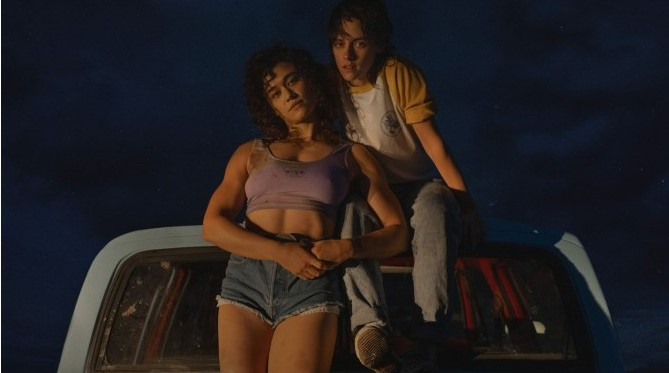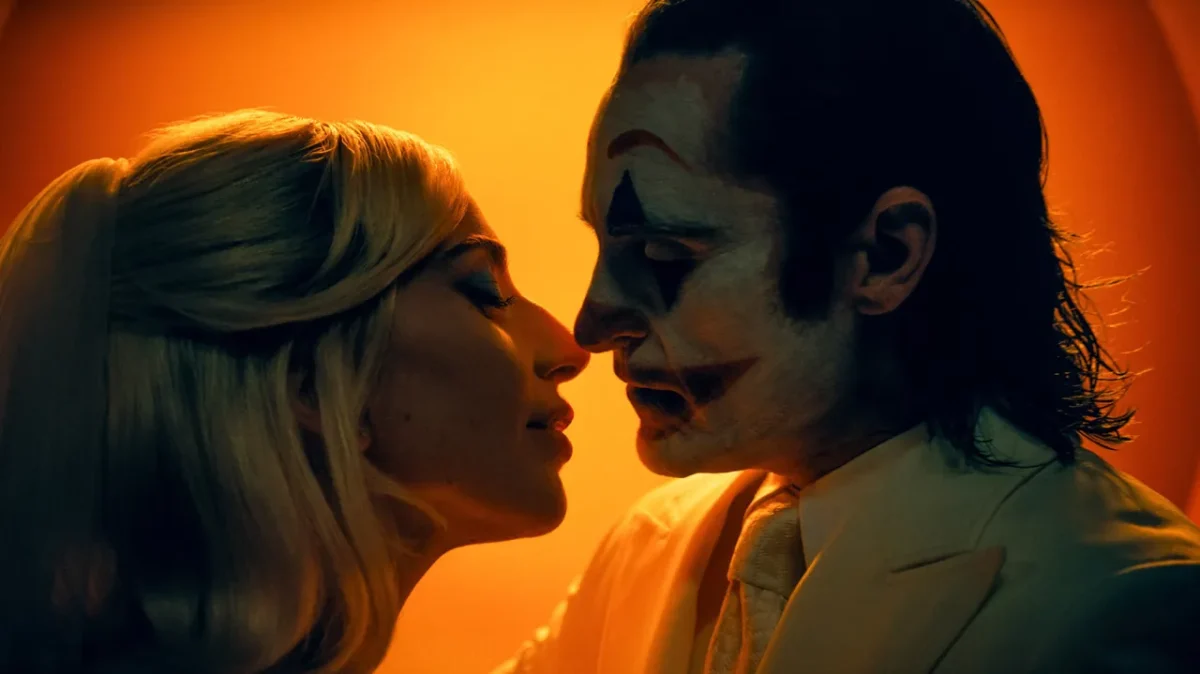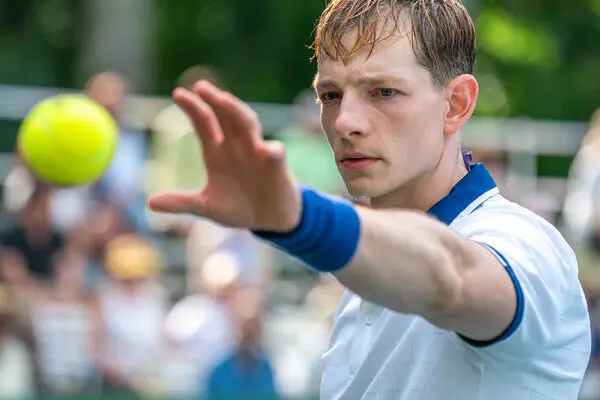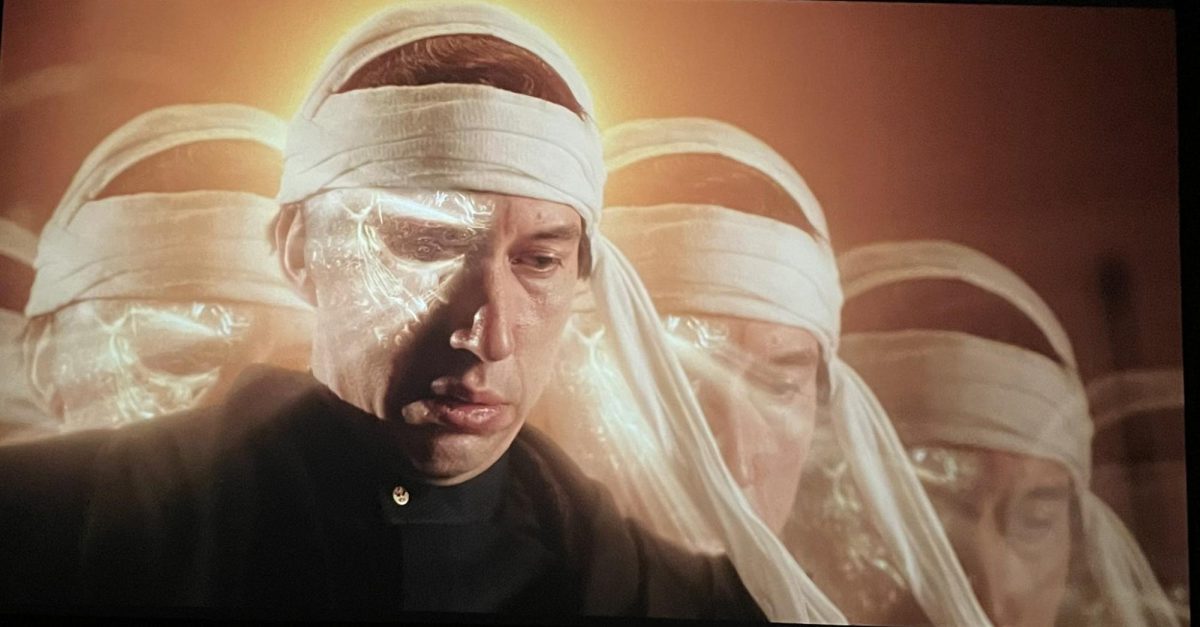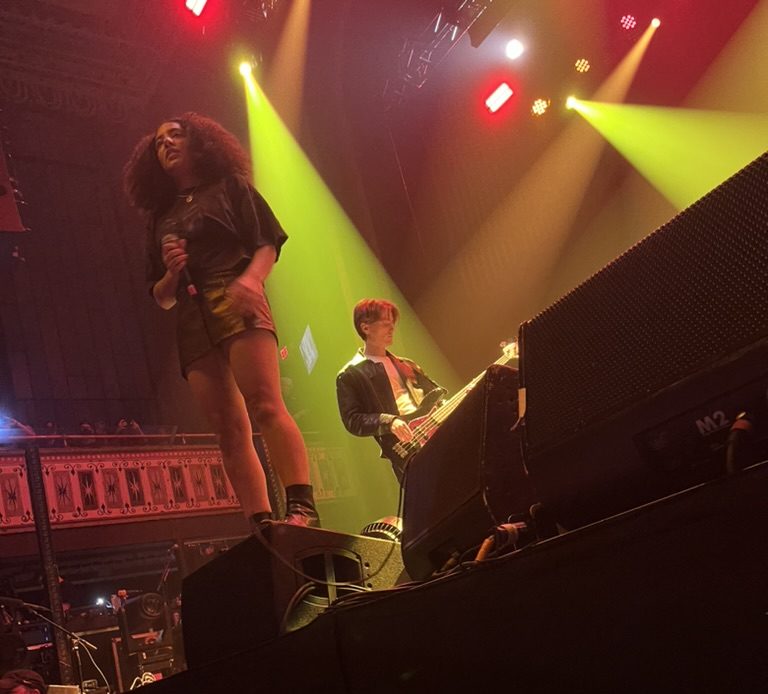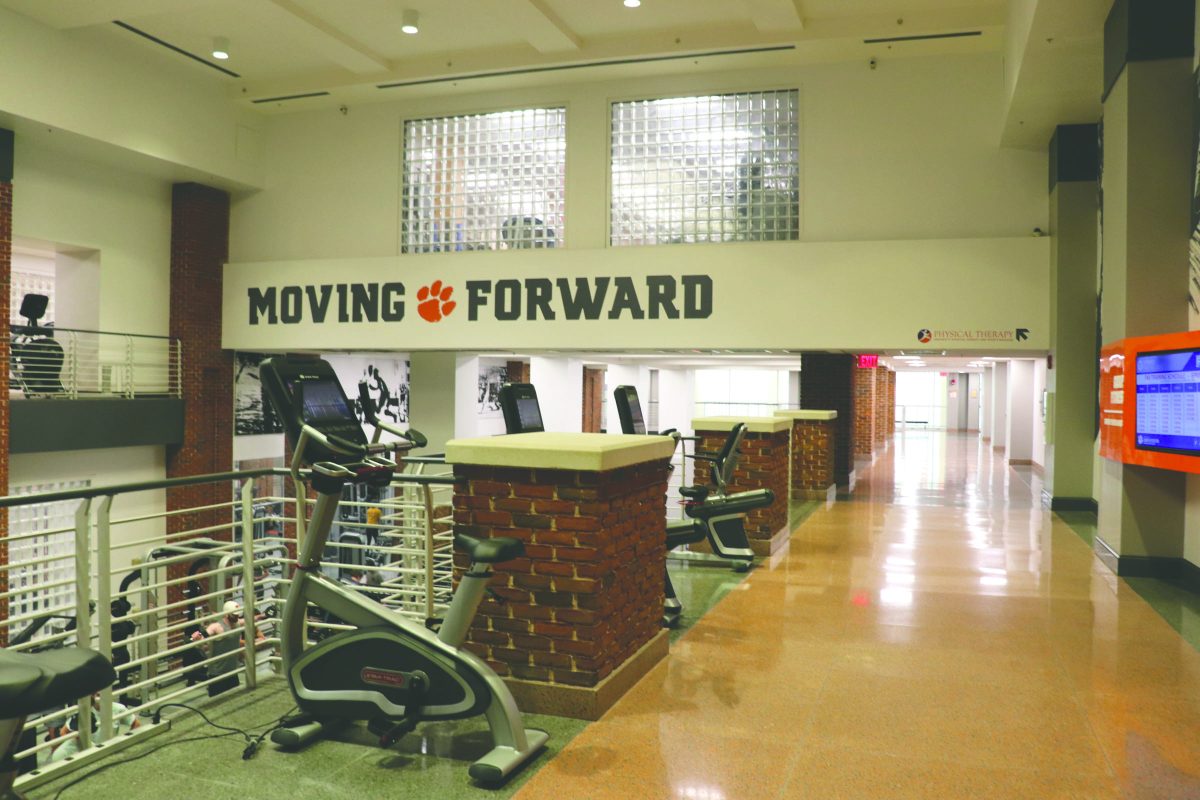The logline for “Love Lies Bleeding,” the latest film from “Saint Maud” director Rose Glass, is simple: Lou, a listless gym manager, and Jackie, a competitive bodybuilder, find their romance disrupted by Lou’s criminal family. The directions Glass takes that premise, however, are anything but straightforward or expected.
“Love Lies Bleeding” is set in 1989, somewhere in rural Nevada. Jackie, exceptionally performed by Katy O’Brian, is traveling to a bodybuilding contest in Las Vegas when she stops at Lou’s gym.
Lou and Jackie quickly begin a relationship, which is thrown into jeopardy when Lou learns that Jackie has gotten a job at Lou’s father’s shooting range. Lou fears that Jackie will become embroiled in Lou Sr.’s criminal activities. After Lou’s sister, Beth, is nearly killed by her husband J.J., Lou and Jackie plan to frame Lou Sr. for J.J.’s murder, thereby exposing his crimes.
From the very first scene, it’s clear that Glass is uninterested in making just a standard romantic thriller. The camera focuses on flexing muscles and sweat-slicked skin, fragmenting characters’ bodies into collections of muscle groups.
Lou, ironically, is the least muscular character in the film. She is played by a waifish, perpetually exhausted-looking Kristen Stewart, who is visibly entranced by Jackie’s unnaturally-defined musculature. Stewart is one of the best actors in the film industry today, and her performance is easily the best in the film. She possesses the rare ability to communicate magnitudes with a single word — her most memorable line in “Love Lies Bleeding” is a faux-baffled “huh?”
Stewart and O’Brian’s considerable chemistry powers the film’s first half, which is an odd sort of hang-out movie in which they talk and have sex, and Jackie works out, and not much else happens.
Despite its casual aimlessness, a deep sense of unease runs through the film’s first act. All of the aforementioned character work is set against the backdrop of J.J.’s abuse of Beth, along with Lou’s surreal dreams about her father’s past crimes.
The supporting cast’s performances enhance the foreboding atmosphere. As J.J., Dave Franco is a greasy, mullet-sporting loser, oscillating between sleazy lewdness towards Jackie and violent aggression towards Beth.
Ed Harris, meanwhile, is terrifying as Lou Sr. His performance is frustrating, sometimes evoking his unhinged turn in Darren Aronofsky’s “Mother” and sometimes hinting at the cold evil he embodied in Alex Cox’s “Walker” but never fully committing to either.
However, the weirdest and most discomforting supporting performance doesn’t come from either antagonist but instead from Anna Baryshnikov, who plays Daisy, a woman with whom Lou has an on-and-off relationship. Baryshnikov is mundanely creepy, the kind of character that’s just one step removed from being normal. She seems nice enough, but when she smiles, her teeth are stained brown, and she spends her nights wandering deserted downtown streets.
The film takes a violent, queasily cathartic turn midway through. After J.J. nearly kills Beth, Jackie flies into a blind rage and murders him. The sequence is classic genre-film violence, complete with near-gratuitous blood and distressingly convincing prosthetics. Realizing the gravity of what Jackie has done, the two women decide to frame Lou Sr. for the murder.
They dump J.J.’s body and car into a canyon that Lou Sr. had frequently used to dispose of prying lawmen and people who had served their purpose.
The movie I have described so far seems like a relatively standard thriller, but its third act throws any pretense of normality out the window. It’s difficult to explain exactly what happens and why it’s so weird without spoiling the film entirely, so I will simply refer to the film’s conclusion as completely insane. I liked it, but it might be too out there and absurd for some.

